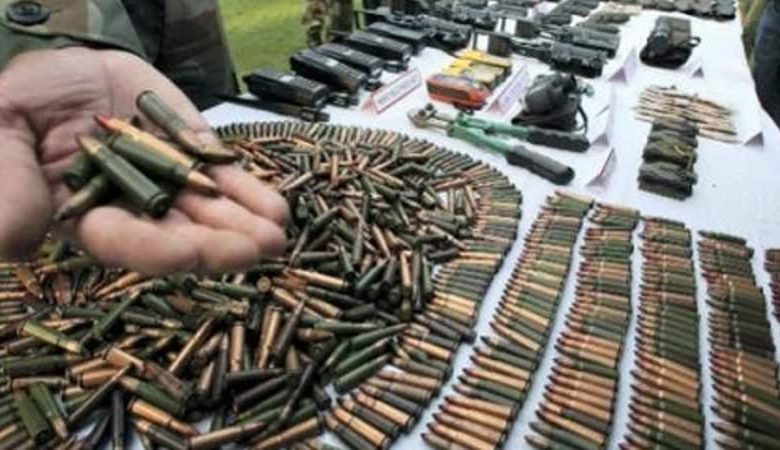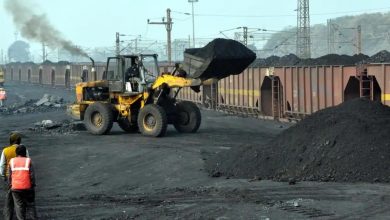Retired Veteran IOFS Officer questions the decision of the Government to Corporatise the Ordnance Factories

A.V.Dhekne, IOFS (Retd.) Former Principal Director of Ordnance Factory Staff College now renamed as National Academy of Defence Production critically analyse the far reaching implications of Government decision to Corporatise the Ordnance Factories. Dhekne says as told by the America Media personality Phil Donahue “suicide is a permanent solution for temporary problem” Corporatisation of OFB will be no different. Let us go through his Article.
The breakneck speed at which this proposed Corporatisation has moved from announcement on 16th May by the Finance Minister, to the appointment of the consultant by DDP in August, has caused lot of anxieties and apprehensions in the minds of OFB workmen, staff, and officers. During the last 40 years, off and on, this proposal was suggested and turned down by as many as Four Defence Ministers. In the present critical times when the entire country is busy in fighting against COVID-19, and there are serious security problems at the border with China, why the Government considers it important to suddenly raise this controversial issue having serious repercussions on the Defence Preparedness of the country, is not understandable. This has led to the apprehension that the Government has some hidden agenda. Even the consultants appointed by the DDP have not been asked to recommend the most appropriate structure for OFB after examining various alternatives, but have been told that OFB will be corporatized and they should give their recommendations to achieve certain goals by the “corporatized” OFB.
Why do we think that corporatisation of OFB will have adverse impact on the Defence Preparedness? The reasons are as under.
1) Except for the announcement that OFB will be corporatized within one year, nothing is known about the scheme. There is absolutely no transparency regarding what the Government has in its mind. When such drastic changes are contemplated in the organisational structure which also involves major changes in service conditions of more than 80000 employees, it was expected that all the stakeholders were taken into confidence and elaborate discussions were held with them to work out an optimum solution. Instead the Government has taken a unilateral decision which has resulted in all the three federations joining hands and calling for an indefinite strike. Whatever be the merits of the corporatisation, how so ever be the good intentions of the Government in proceeding with this scheme, whatever be the grand vision of the Government for OFB, this corporatisation is not likely to succeed when all the employees are resisting it so strongly. Even if coercive measures are adopted, OFB production is bound to suffer drastically and thereby the defence preparedness will be affected.
2) Unlike in the developed countries, there are no large private industries in India catering to the defence production. The private firms hesitate to enter into this field because
a) Huge investment has to be made to create the capacity
b) There is no guarantee that they will regularly get orders from the Army for the items for which capacity has been created.
c) The plant and machinery required for the manufacture is of a highly specialised and dedicated nature and cannot be used for production of any other items d) For export of these items they will have to compete with the established players and in any case export of defence items is a dirty trade e) Unlike civilian items, the defence items have very stringent specifications. The manufacturing tolerances are very narrow and critical. The rejection percentage is, therefore, very high. f) contrary to the impression created by the retired generals from the Army, the cost of OFB products like weapons, ordnances, tanks, ammunitions, vehicles etc is on a lower side because the capacities created in ordnance factories are more than 20 years old. If these capacities are to be created now, the plant and machinery prices alone would cost 7-8 times because of inflation and effective devaluation of Rupee. Moreover the OFs do not have to pay any Financing charges. They also supply the items to the Army at cost price without charging any profit. Even presuming higher productivity of the Private Firms, they stand no chance to compete with the costs of products of ordnance factories. If the Private Firms do not come forward and OFB production is affected because of the “corporatisation”, can the Army depend on imports to fight any war?
3) The capacities created in OFs are to meet peak production that is “war load”. The Private Firms, if at all they enter the field of defence production, will go in for the optimum capacities only. If “corporatisation” of OFB affects the supply from OFB, who will supply the war time requirements of the Army?
4) OFB after corporatisation will have to depend on internal resource generation for financing its projects. Obviously, it will have to charge hefty profit from the services. Also all the spares which presently are being issued at the cost price, will be charged much higher price as is the general trade practice. The Army will have to bear all these cost increases within their budgetary allotments and will therefore be forced to cut short the requirements of even some of the essential goods thereby affecting the defence preparedness.
5) Even if orders are not forthcoming for an item, ordnance factory cannot dismantle the production line for that item unless the item has been declared “obsolete” by the Army. Maintaining such production lines indefinitely adds to the costs in the form of overheads. OFB after corporatisation will be subjected to the performance evaluation by applying various commercial indices and so, it cannot keep such production lines alive for years. Who then will supply these items if and when the need arises? Presently, OFB keeps on supplying spares for every main item for indefinite period. Private firms do not supply spares after a specific period generally 10 years. OFB after corporatisation will necessarily adopt similar trade practice. What will the Army then do with the main items requiring spares? Can the Army afford to discard and throw these away?
6) It is learnt that similar experiment carried out in UK for corporatizing /privatising a departmentally run defence industry failed miserably, despite the fact that large number of private industries supplying defence goods exist in UK. The Government should verify this, and if true, should learn from their experience.
Lastly, whatever the vested interested Retd. Army officers say, OFB has been a most reliable and dependable supplier of defence stores particularly since 1962 war. Without establishing another reliable and dependable source of supply, experimenting with the OFB set up may not be advisable since it can have dangerous consequences. Corporatisation of OFB is altogether on a different footing than corporatisation of govt. Mints and Presses or BSNL. We can only request the Government to exercise extreme caution in proceeding with this sensitive issue and in any case carry all the employees with it in case it considers the proposed change as essential. As otherwise, it will be as Phil Donahu said “ Suicide is a permanent solution for temporary problem”. Corporatisation will be no different.




